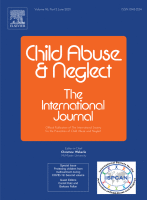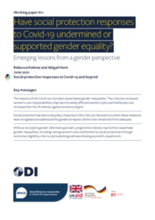childrens_living_arrangement
children_living_without_bio
Displaying 61 - 70 of 334
These presentations from Know-How Center Bulgaria, Children and Family Initiative, and Changing the Way We Care, were delivered during the September 30, 2021, workshop of the Care Measurement Task Force of the Transforming Children's Care Global Collaborative Platform. The focus of the workshop was translating research evidence into action.
These presentations from Hope and Homes for Children, Miracle Foundation and Railway Children were delivered during the August 20, 2021, workshop of the Care Measurement Task Force of the Transforming Children's Care Global Collaborative Platform. The focus of the workshop was child and family outcome measurement.
UNICEF is seeking a professional and technical writer to finalize the report of an Audit of Unaccompanied and Separated Migrant Children in Alternative Care (Child and Youth Care Centers and Foster Care) in South Africa.
These presentations from UNICEF and Alternative Care Thailand were delivered during the July 9, 2021, workshop of the Care Measurement Task Force of the Transforming Children's Care Global Collaborative Platform. The focus of the workshop was on care measurement initiatives in Eastern and Southern Africa and Thailand.
The current discussion paper explored the impact of COVID-19 on child maltreatment reports and CPS responses by comparing countries using available population data.
This is a video recording from the webinar: Constructing the foundations for legal identity in post conflict situations. This webinar shared findings from research that documents how Afghanistan, Georgia, Rwanda and South Africa have made registration of vital events more accessible by adjusting or removing legal and institutional obstacles in post-conflict settings.
In this webinar, UNICEF’s Lauren Rumble and Alessandra Guedes describe how violence in childhood is gendered, introduce the links between violence against women and children, and share effective gender-transformative strategies.
The authors of this study conducted a quasi-experimental feasibility trial in South Africa to adapt and evaluate an established year-long semi-structured, manualized video-feedback caregiver intervention (the Mediational Intervention for Sensitizing Caregivers; MISC) for community-based organizations (CBOs) to equip community-based careworkers with the skills to address the mental health needs of orphans and vulnerable children (OVC).
According to this article from Ground Up, several civil society organisations have urged South Africa's Minister of Social Development, Lindiwe Zulu, to introduce a Child Support Grant Top-Up for orphans in the care of extended family.
This paper draws on two case studies – South Africa and Kerala, India – to discuss the gender implications of social protection responses to Covid-19 in 2020.


